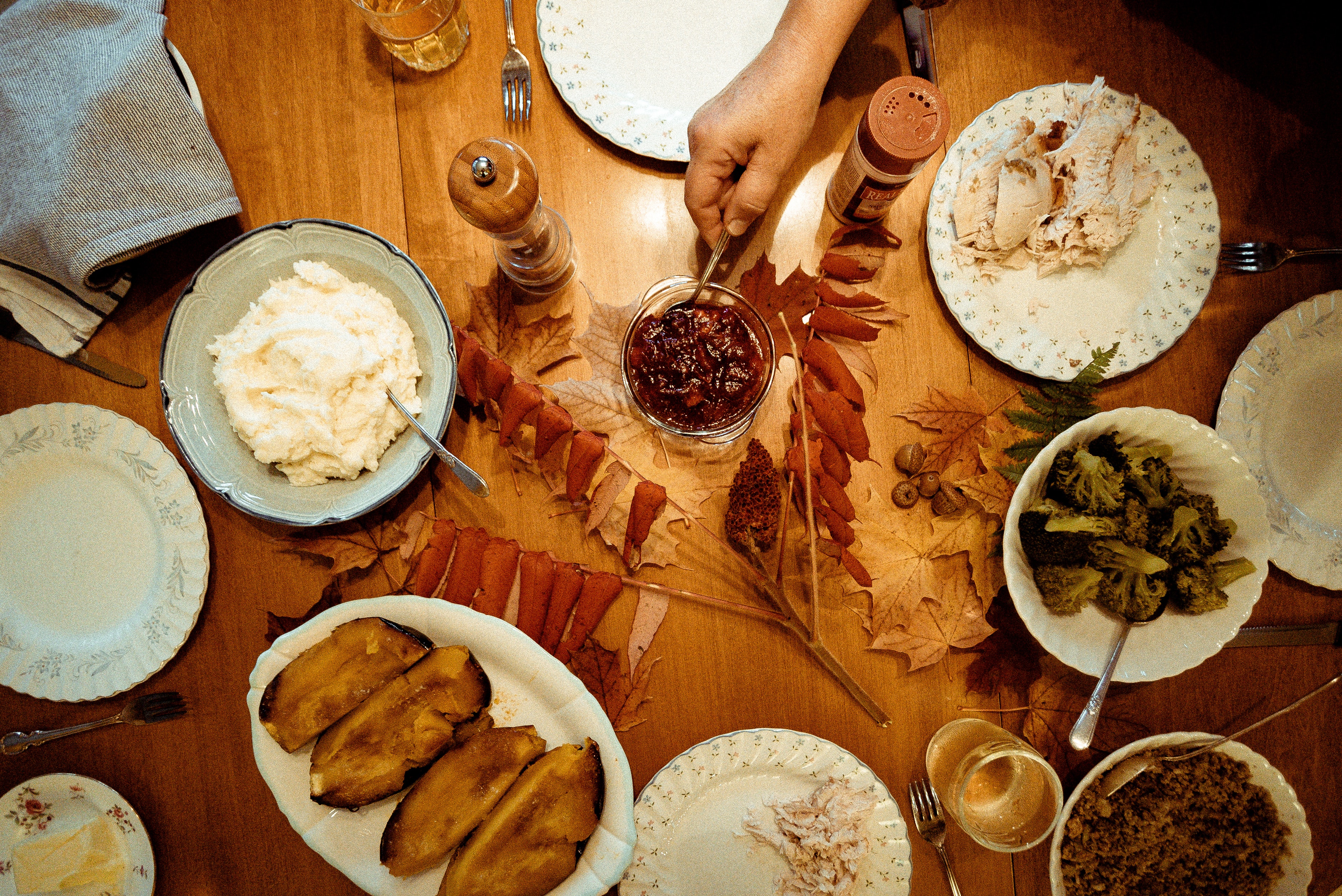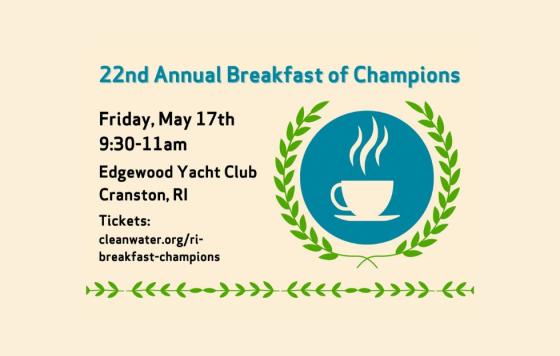
Winter is almost here and the season for holiday entertaining is fast approaching. While hosting any kind of gathering, it is easy to focus on convenience rather than on how much waste you are creating. Yet, every bit of trash generated will end up polluting the environment down the line. Waste and plastic pollution has become a global environmental crisis, threatening our waterways and oceans, wildlife, public health, and even our climate.
By the year 2050, there will be more plastic in the ocean, by weight, than fish. And the problem doesn’t stop there. Fossil fuel extraction - not consumer demand - is driving more plastic production, while also polluting our air and water, and contributing to the climate crisis. Plastic use also pollutes our bodies, exposing us to toxic chemicals that can have severe health impacts.
Even efforts to recycle plastic are still really just efforts to manage waste rather than reduce it. This has largely been unsuccessful with less than 8% of plastic actually being recycled. Most of it ends up in storm drains, waterways, landfills or incinerators. While the problem is big and complex, every small step towards zero waste is part of the solution.
Here are some of our top zero waste recommendations to fight plastic pollution without adding stress to an already hectic holiday season.
1. Skip disposable dinnerware
Skipping disposable paper and plastic products for holiday meals means less waste in landfills, incinerators, and our oceans. It’s time to open your cabinets and pull out those fancy dishes that go unused most of the year. If you’re worried that you don’t have enough dishes for your guests, plan a simple menu with finger foods your guests can enjoy with a napkin in hand. Or consider picking up a complementary set of serviceware at your local thrift or consignment store. If you plan to cook a full sit-down dinner but either don’t have enough dishes or simply dread the cleanup, consider renting dishes from a company that takes care of delivery, pick-up, and dishwashing.
2. BYO Mug/Wine glass/tumbler
Maybe you only have a couple of wine glasses in your cupboard, or there aren’t enough mugs to go around for coffee after dessert. You can skip the plastic or Styrofoam cups by asking your guests to bring their own drinking glass. No need to worry about forgetting which red plastic cup is yours on the counter.
3. Pitchers of drinks
Instead of buying individual drinks in cans or plastic bottles, opt to create delicious cocktails and non-alcoholic beverages in pitchers that your guests can refill in their own cups. And while serving drinks, ask if anyone really needs a straw before sticking one in every cup. Offer reusable straws to guests you know will need one.
4. Trash | Compost | Recycle
Make waste-sorting easy on yourself and your guests by clearly labeling bins designated for trash, composting, and recycling. While reduction and reuse always take priority, making sure that your recycling bin is not contaminated with non-recyclable materials is key to ensuring it won’t all become trash. Not everything made of plastic is actually recyclable. Make sure you know what kinds of recyclables your town collects, and make sure only those items go in the bin. Recyclable plastics are labeled by number inside the easily recognizable recycling symbol, but don’t assume your town collects all kinds of plastics for recycling. Most only take plastics labeled with numbers 1 and 2. The best way to avoid confusion is to limit plastic altogether, especially anything other than numbers 1 and 2.
5. BYO Leftover container
No holiday gathering goes without excess food. You have probably sent family and friends home with leftovers in containers you will never see again, or on paper plates wrapped in plastic. Ask your guests to each bring a container or two to bring leftovers home with them. Not only will you get to keep all your own leftover containers, it allows you to avoid disposable paper plates and plastic wrap that only add to our waste problem.
6. Decorations
If you’re the festive type who enjoys decorating for the holidays, skip the party store and choose some DIY decorations from nature. Rather than streamers, tinsel, or confetti, use acorns around your center pieces and make streamers with pinecones. Get creative! Not only are these unique elements going to invite compliments from your guests, but you can reduce your carbon footprint by avoiding materials that harm the environment. And best of all, they are FREE!
7. Gift Giving Time
Gift-giving is a great way to encourage your friends and loved ones to be environmentally conscious. For those who may want to reduce their use of single-use disposables, practical gifts like reusable water bottles, straws, and food containers can make the transition easier for them.
Clothes are commonly gifted around the holidays, but 60% of materials used in clothing are actually made of plastics. In the laundry, fabrics containing materials like polyester, acrylic, and nylon release microplastics into the water. These toxic plastics are less than 5 millimeters long and invisible to the naked eye, making them particularly good at accumulating in the bellies of marine life and moving up the food chain into the human body. In addition to choosing companies that are committed to sustainable production, consider purchasing holiday sweaters and wearable gifts made only from natural fibers like wool or linen.
8. Giftwrapping
Have you ever stopped to think about the absurdity of buying wrapping paper just so it can be thrown away? Rather than traditional decorative giftwrap, use items around your house for a unique alternative. Comics from old newspapers, paper grocery bags, scrap fabric, and even children’s artwork are items you can use to wrap gifts without adding waste. Decorative storage baskets and reusable jars can serve as packaging and gift!
9. Traveling
Families trek from all corners to unite for the holidays. It can be easy to grab a few goodies at a rest stop, or snag a drive-thru meal. Unfortunately, their convenience carries an environmental cost. Rather than purchasing snacks and water contained in plastic, prepare for your trip by packing snacks from home such as crackers and sandwiches. Not only is this budget-friendly, it will minimize the trash you accumulate during your trip that will end up in our oceans, incinerators or landfills. Fill reusable water bottles and coffee cups and refill them at rest stops to avoid grabbing a straw and/or purchasing excess plastic, paper, and polystyrene foam.
10. Fossil Fuels and Plastics
Zero waste habits, especially when practiced in a group setting like a holiday gathering, can go a long way. At the same time, we can’t ignore the systemic issues that make it difficult to live completely plastic-free and waste-free. The fossil fuel and packaging industry are forever flooding the market with cheap plastic and single use disposable products - making plastic waste even more difficult to avoid.
With friends and family gathered around the table for the holidays, it’s a great opportunity to share your zero waste tips! Learn more about our campaign to ReThink Disposable not just at the holidays but everyday in your home, school, corporate campuses, festivals, food trucks, and restaurants.



